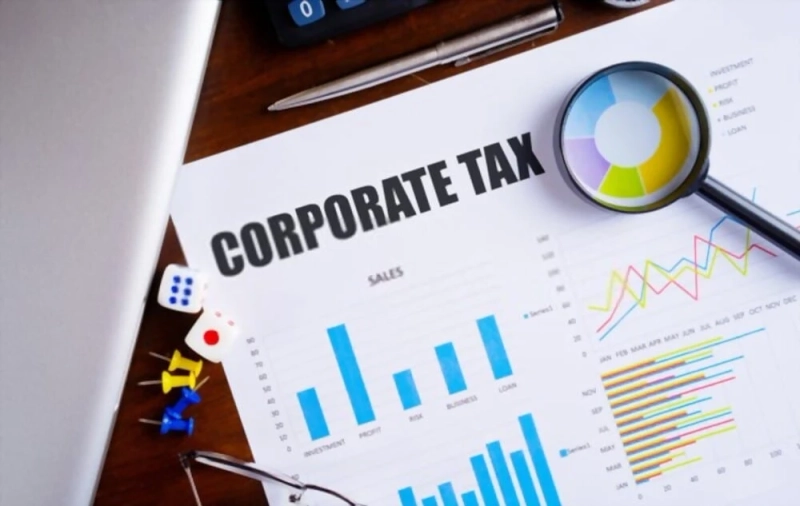A tax definition for a corporation
Limited firms in the United Kingdom and a few other organisations must pay corporation tax. It is calculated using a company's annual profits. Although all profits are taxable, certain particular expenses can be deducted, and there are allowances you can employ to help lower your tax bill.
For a limited firm, corporation tax is imposed on the following:Profits from trading are earnings derived from doing business.InvestmentsFor a taxable gain, you can sell assets like land, property, stocks, and machinery.
Who is responsible for paying company tax?
All limited corporations in the United Kingdom are required to pay corporation tax. Corporation tax is not paid by sole traders or partnerships; instead, they must file a tax return and pay income tax on their earnings.
Other organisations, on the other hand, may be required to pay corporation tax while not being limited to businesses. These are some of them:
Housing cooperativesOrganizations that have membersSocieties and clubsCo-operativesFrom April 2023, how the company tax rate will vary
The government announced further modifications to the corporation tax rate in Budget 2021.
If your taxable profits exceed £250,000 as of April 2023, you will be subject to a 25% upper limit. If your profits are less than £50,000, you will be liable to a lesser rate of 19%. If your profits fall anywhere between the lower and upper limitations, you'll pay a marginal rate of 26.5 percent, but you'll get marginal relief.
submitting a tax return for a business
Every year, you must file a CT600 corporate tax return. Your company's accounts must also be filed with HMRC and Companies House. Your revenue and profit for the reporting period, your tax computations, and the allowances and reliefs you've used are all factors you'll need to include in the CT600.
After that, you'll know how much corporate tax you'll have to pay. Remember that your company's tax return must be filed 12 months after the accounting period it covers. Even if your company is losing money, you must still file a CT600 to notify the IRS.
If your profits exceed £1.5 million, you will be required to pay your charge in instalments. These payments have different due dates depending on the size of your business and the duration of the accounting quarter. Payments are generally payable quarterly throughout a 12-month period, with two of these instalments due before the conclusion of the accounting period.
The instalments will be an estimate of the corporate tax liability due for that period, with a correction required once the final liability is computed after the period ends.
When do you have to pay company tax?
The deadline for reporting company taxes differs from that of other taxes. It must be paid before your company's tax return can be filed. This means that the due date is determined by your company's tax accounting period.
You must pay your corporate tax payment nine months and one day after the conclusion of the preceding financial year's accounting period. Your bill will be due on October 1 if your accounting period ends on December 31.
Getting paid
As stated in the preceding section, you must pay your bill by the due date. Failure to do so will very certainly result in fines and penalties, which we'll go into later in this article. You can pay HMRC in a variety of ways, which are listed below:


